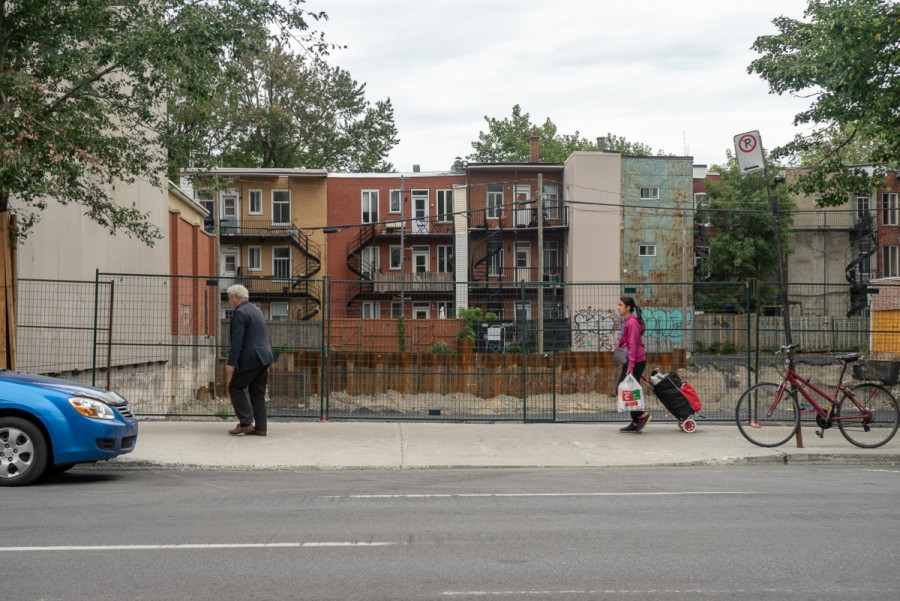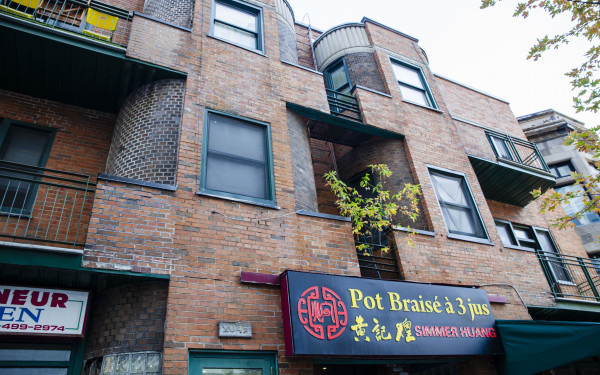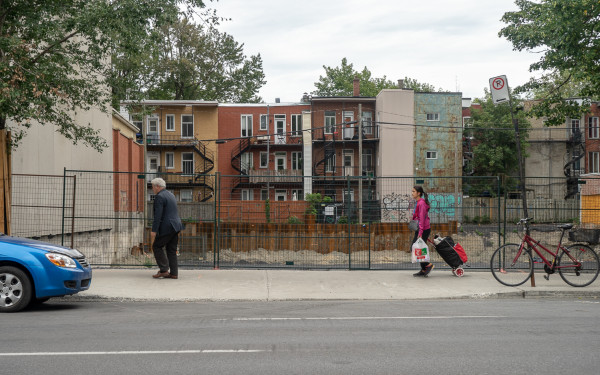City of Montreal Triples Initial Donation to Woodnote from $500,000 to $1.6 million
CSU and UTILE Looking to Open by Fall 2019 or January 2020
Last winter then-Mayor of Montreal Denis Coderre announced the city would contribute $500,000 to the Woodnote Housing Cooperative. Last Tuesday, the city’s Executive Committee approved tripling the donation, making it a total of $1.6 million towards the project.
“By supporting this great project it also means that it will take pressure off the rental market and some of those big apartments can be used by families that are also looking for options,” said Mayor of Montreal Valerie Plante, as reported by CTV.
The donation comes after the Concordia Student Union and Unité de travail pour l’implantation de logement étudiant had to push back construction because, according to the CSU’s Finance Coordinator John Hutton, the bid submitted for the project by the construction companies were higher than the architect originally estimated.
Laurent Levesque, General Coordinator of UTILE, said the initial budget for Woodnote—set to be a 90 unit, 147 room building—was $14 million, but they are now estimating the final budget to stand between $17 and $18 million. Hutton added that they’ve made modifications to reduce the building’s costs, such as not working over the winter.
“Doing so requires heating the concrete which could cost several hundred thousand dollars,” Hutton told The Link.
According to the Journal de Metro the project also received an a $3 million investment in early September from Le Fonds d’investissement pour logement étudiant. FILE is a $10 million investment fund for non-profit student housing in Montreal and other cities. According to Levesque, the fund was created because of the Woodnote to develop more affordable student housing in the province.
“When I was saying that this project is having ripple effects, that’s one of the examples,” Levesque told The Link.
Construction for the project was initially set to take place at the end of September, but will now take place next month. Though Levesque said that construction has technically already started, since the land has been decontaminated.
“It’s ready to build. We hope to get started soon with the actual foundation,” Levesque told The Link.
This isn’t the first time the Woodnote Housing Cooperative has been pushed back. Back in February 2018, the project was previously delayed after the CSU had to find an extra $200,000 to meet requirements in order to obtain a construction permit from the Plateau-Mont-Royal borough.
With no concrete date set, the CSU and UTILE, are projecting the housing co-op to be completed and opened between Fall 2019 and January 2020, cutting it close to the deadline imposed by the CSU’s term sheet, a legally binding document that was approved in February 2016.
Former CSU general coordinator Terry Wilkins told The Link in 2016 that if the project is not delivered by the end of 2019, “all assets will be returned to their rightful owners.”
Levesque said that in the case that delivery by the end of 2019 becomes impossible, UTILE “will strongly recommend” the CSU to amend the contract and extend the deadline.
“An extension of a few months would safeguard the project, whereas its cancellation would probably not return any sums to CSU, considering that cancelling a construction is extremely costly,” said Levesque in an email to The Link.
“Delays happen with large construction projects, but all the partners involved in the Woodnote Project have done a good job of navigating the many complicated and overlapping parts of the project,” said Hutton in an email. “All partners in the project, including the CSU, are very excited to break ground and make our vision of an affordable, cooperative student housing community into a reality.”
Though the project has been in the works since 2016, Levesque said that UTILE are collaborating with other students unions to help create similar projects. Levesque said UTILE are supporting other student groups at McGill, Université Laval and Université du Québec à Trois-Rivières to create their own housing projects.
“These groups are inspired by the Woodnote project,” he told The Link.




_600_375_90_s_c1.jpg)


